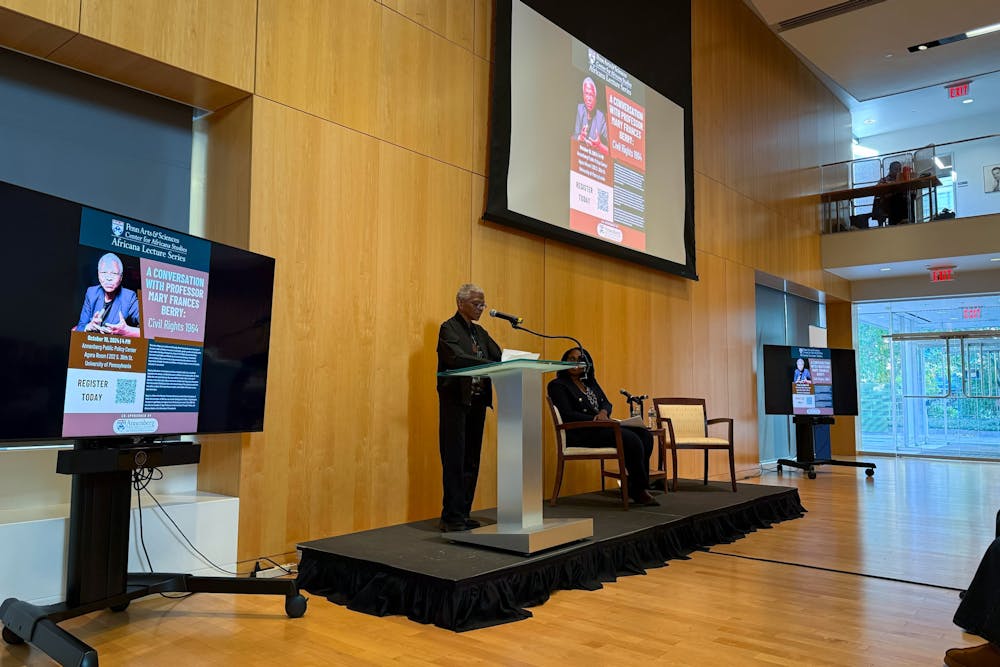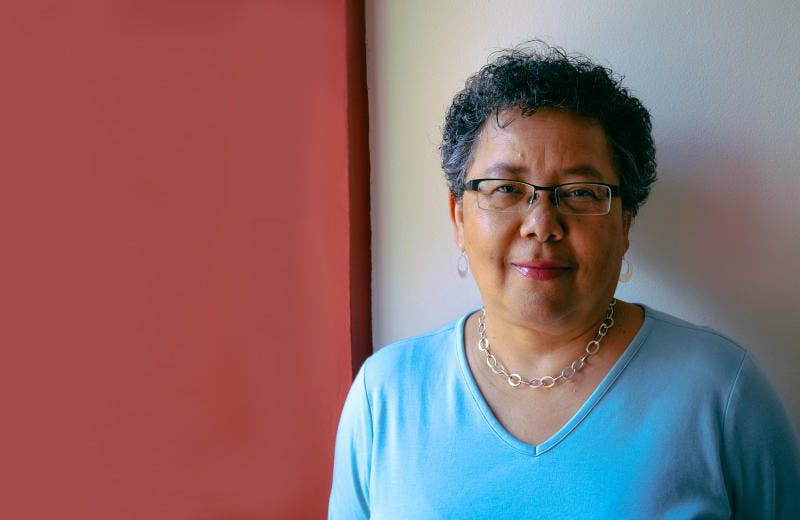
History and Africana Studies professor Mary Frances Berry led a discussion on the significance of the 1964 civil rights movement at the Annenberg Public Policy Center on Oct. 10.
The talk, which is part of Penn's Africana Lecture Series, marks 60 years since the work of the civil rights movement in 1964. Bernadette Butler, the associate director of equity and inclusion in the Wharton School’s Undergraduate Division, interviewed Berry about the Civil Rights Act of 1964, the ongoing struggles faced by Black Americans, and the broader implications of civil rights advocacy today.
Berry is the Geraldine R. Segal Professor of American Social Thought Emerita and author of 12 books. She served on the United States Commission on Civil Rights for 24 years, including as chair from 1993 to 2004. She has also served as the assistant secretary for education in the United States Department of Health, Education, and Welfare.
During the talk, Berry discussed her personal work as an activist and scholar, shared lessons that she learned from working with political leaders, and reflected on the flaws of the 14th Amendment. She acknowledged that despite the gains of the 1964 civil rights movement, Black people did not achieve full equality, emphasizing that the fight for civil rights is far from over.
The event drew around 60 attendees. Following the talk, attendees asked Berry questions about student activism and her views on current political issues. College sophomore Jaimee Martin — a former Daily Pennsylvanian staffer — said that she attended the event because she “wanted to learn” from Berry.
“She has so much wisdom to offer for organizers,” Martin said. “Her stories and lessons reaffirmed to me that being a radical organizer is what I want to do with my life.”
Jakki Hunter, a former 1972 Penn student who said she frequently attends Berry’s talks, echoed a similar sentiment.
“Professor Berry is so wise in the things that concern civil rights, America, the history,” she said. “She’s just fabulous, and every time I know that she’s appearing here, I come.”
Hunter said that Berry’s discussion of the flaws of the Civil Rights Act of 1964 most resonated with her.
“We think we have achieved something in terms of the Civil Rights Act, and we have, but we need to realize that whatever we do, whatever we achieve, there are flaws,” Hunter said. “We have to watch out for the flaws, and we have to be on guard, and we have to be vigilant and watch and respond."
Butler told the DP that this was her first time meeting Berry.
“I came with an empty cup ready to have it filled with all the knowledge and experience that Dr. Berry could share,” Butler said. “I didn't have specific questions, I was just more intrigued about what it looked like to have literally lived through what we learn in history books.”
She emphasized her hope that people will "listen and learn" from Berry's experience.
"If we listen and learn, then we have a chance to change things," she said.
The Daily Pennsylvanian is an independent, student-run newspaper. Please consider making a donation to support the coverage that shapes the University. Your generosity ensures a future of strong journalism at Penn.
Donate











